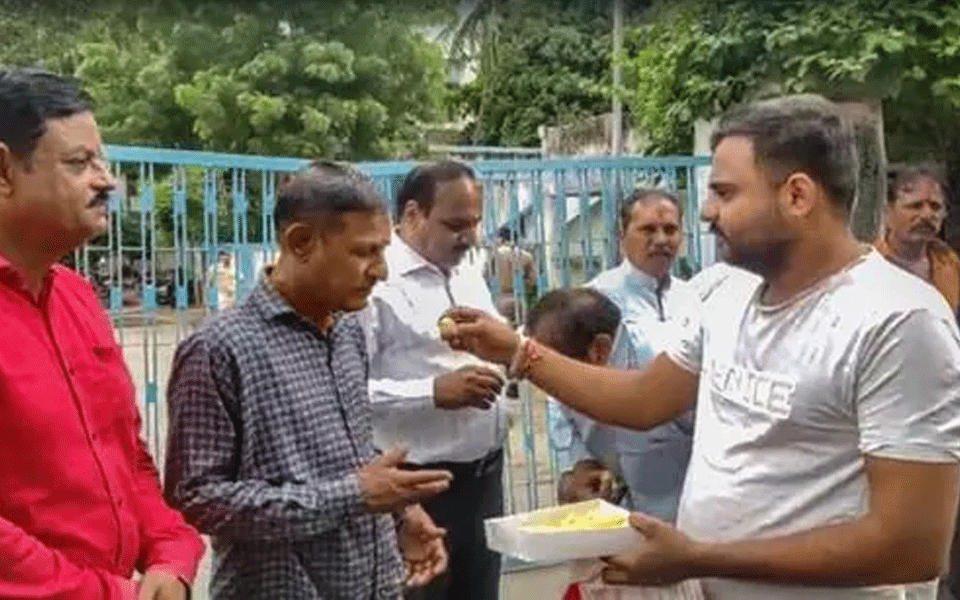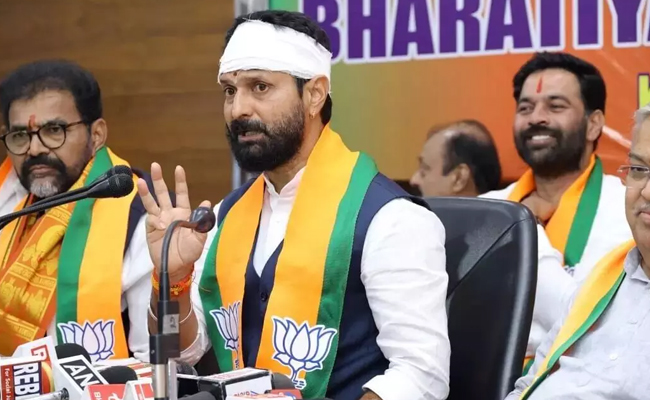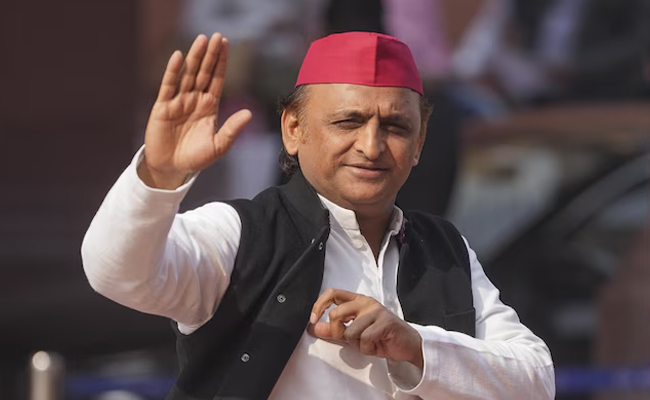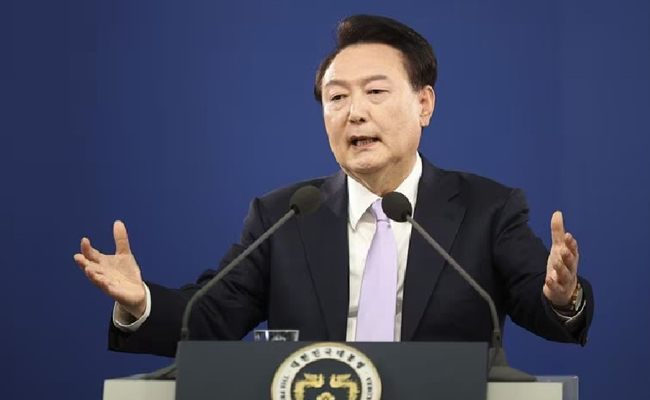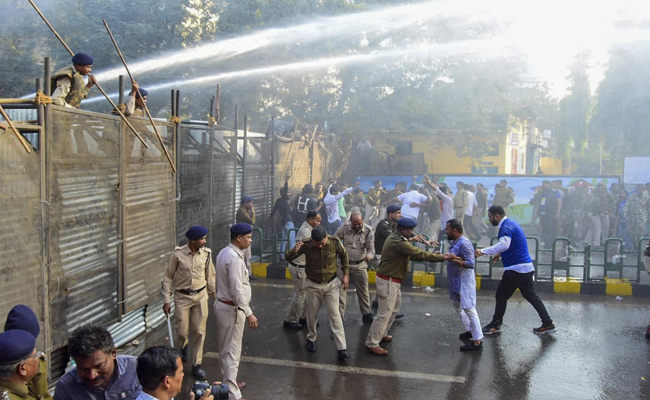New Delhi: The release of the 11 convicts who were released in the Bilkis Bano case has taken a turn with filing FIRs for harassment against them being revealed.
The convicts in the rape of Bilkis Bano and murder of her family members in 2002 case were released on August 15 and felicitated like heroes. The Gujarat government had cited ‘good behaviour’ of the convicts and the approval of the Centre for their release.
The government claim of good behaviour, however, appears to be broken down by FIRs of harassment found to be filed against the convicts, said NDTV.
Multiple FIRs as well as police complaints were filed against the convicts for threatening and harassing witnesses when acquitted. Both these contradict the claim of good behavior and the absence of evidence of wrongdoings by the convicts while serving time.
At least four witnesses in the Bilkis Bano case filed complaints and FIRs against the convicts between 2017 and 2021, said the source.
An FIR was registered against two convicts Radheshyam Shah and Miteshbhai Bhatt at the Radhikapur police station in Dahod on July 6, 2020. The FIR was filed by Saberaben Patel, and a witness in the Bilkis Bano case, Pintubhai, under sections 354 (assault or criminal force with intention to outrage modesty), 504 (intimidation), 506 (2) (threat to kill) and 114 (abetment) of the Indian Penal Code (IPC). It said that three men, including two convicts and Radheshyam's brother Ashish, threatened Saberaben, her daughter Arfa and witness Pintubhai for implicating them with their statements on the case.
In another police complaint, filed with Dahod police against Sailesh Chimmanlal Bhatt on January 1, 2021, Mansuri Abdul Razzaq Abdul Majid, another witness, had alleged that he was being threatened by the convict while the latter was out on parole. It also referred to the felicitation of Bhatt by Limkheda MLA Sailesh Bhai Bhabhor and former minister of state and Lok Sabha MP Jaswantsing Bhabhor for Bhatt’s good deeds. The complaint, however, was not turned into an FIR.
In a third complaint, which was also not turned into an FIR, two witnesses Ghanchi Adambhai Ismailbhai and Ghanchi Imtiazbhai Yusufbhai, told the police on July 18, 2017, that one of the convicts, Govind Nai had threatened to kill them if they did not agree to "compromise", said the source.
On Tuesday, the Supreme Court said that the Gujarat government justification of the release of the convicts prior to term had cited judgments, not factual statements. A bench headed by Justice Ajay Rastogi had called it ‘a very bulky counter’ that lacked factual statements.
Defending the release of the convicts for ‘good behavior’, Union Minister Pralhad Joshi said, “When the government and the concerned people have taken the decision, I don't find anything wrong in it as it is a process of law.
Let the Truth be known. If you read VB and like VB, please be a VB Supporter and Help us deliver the Truth to one and all.
Belagavi (Karnataka) (PTI): In the wake of allegations against police for ill-treating Karnataka MLC CT Ravi in custody, the police on Tuesday clarified that the BJP leader was shifted to various places for security reasons and to avoid disrupting public order.
On December 19, Ravi was arrested by the police from the premises of Suvarna Vidhana Soudha in Belagavi for allegedly using a derogatory word against Minister Laxmi Hebbalkar in the legislative council hall.
According to a police statement, after registration of case under section 75 (sexual harassment) and 79 (word, gesture or act intended to insult the modesty of a woman) of the Bharatiya Nyaya Sanhita in Hirebagewadi police station here, Ravi was taken into custody and handed over to the investigating officers.
However, Ravi was shifted to Khanapura police station considering the security aspect and the huge crowd gathered near Hirebagewadi police station.
"In Khanapura too, a large number of media persons, supporters and party workers gathered and created a chaotic atmosphere. There was also the possibility of additional supporters and Congress workers arriving, all these factors also had the potential to disrupt public order," the police stated.
Keeping in mind Ravi's safety, he was shifted to Ramadurga, it said.
"Despite all precautions, media and other persons followed the convoy. Keeping in mind the safety of Ravi, the escort force took steps to escape from all of them. Throughout this process, all facilities including food and medical services were provided to Ravi and he was produced in the court," the police added.
The clarification came from police days after Ravi accused them of "violating" human rights, as he alleged that they took him on rounds the entire night to various places in the district.
The former BJP national general secretary, who had bandages on his head, even claimed that police were behaving on the directions of someone from the "top", as he hit out at the state government and the administration, calling it "dictatorial".

